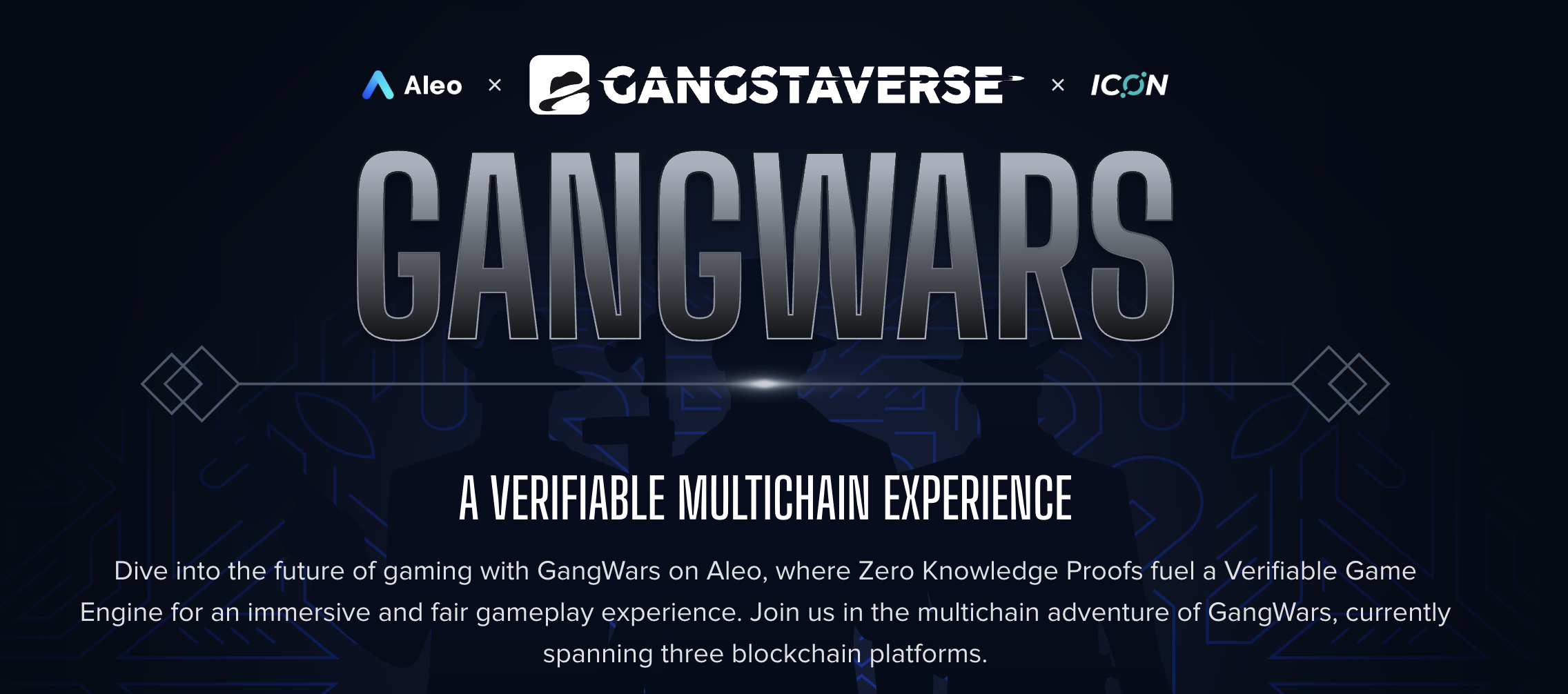Experimenting with Zero-Knowledge Proofs on Aleo's Gaming Hackathon
We’re excited to share that we won a prize at Aleo’s Gaming Hackathon for our experimental implementation of Gang Wars using zero-knowledge proofs. This research project explores how ZK technology can push the boundaries of what’s possible in fully on-chain gaming.

Exploring Aleo’s Zero-Knowledge Architecture
Aleo’s zero-knowledge architecture offers unique capabilities for game development. The ability to execute complex computations off-chain while maintaining verifiable on-chain proofs opens doors for game mechanics that would be computationally prohibitive on traditional blockchains.
For our hackathon submission, we built an experimental version of Gang Wars that leverages Aleo’s ZK capabilities to create what we call an “Advanced Verifiable Game Engine.” The core idea: complex battle simulations can run privately and efficiently, with only the cryptographic proofs of outcomes posted on-chain.
Building Gang Wars with Zero-Knowledge Circuits
We implemented key Gang Wars mechanics on Aleo to test how zero-knowledge proofs could handle turn-based strategy gameplay. Players could engage in battles where the actual combat calculations happened off-chain through ZK circuits, but the results remained fully verifiable and tamper-proof on-chain.
This approach solves a fundamental challenge in fully on-chain gaming: balancing computational complexity with on-chain verification. Traditional blockchains force us to choose between simple game mechanics or expensive gas fees. Zero-knowledge proofs offer a third path where complex calculations can happen off-chain while maintaining the trustless verification that makes blockchain gaming valuable.
Key Insights from the Hackathon
The hackathon project taught us several things about ZK gaming infrastructure. Writing game logic as ZK circuits requires thinking differently about state management and computation. What works elegantly in traditional smart contracts doesn’t always translate cleanly to zero-knowledge proofs, and vice versa.
Hidden information games become much more practical when you can prove outcomes without revealing intermediate states. Strategic depth increases when players can make moves that opponents can’t front-run or predict by reading on-chain state. These capabilities open up entirely new categories of game design that simply aren’t possible with transparent blockchains.
An Experimental Playground, Not Production
This remains an experimental playground rather than a production deployment. Aleo’s technology is fascinating, but we’re committed to building Vendetta on Sui where we can ship features to players today. However, the lessons from this research inform how we think about game architecture and what might be possible as ZK technology matures.
Winning recognition at Aleo’s Gaming Hackathon validates that exploring these cutting-edge approaches matters. As we continue building Vendetta and expanding our fully on-chain gaming studio, experiments like this help us understand where the technology is heading and how to prepare for what becomes possible next.
The Future of Fully On-Chain Gaming Technology
The future of fully on-chain gaming will likely involve multiple technological approaches working together. Traditional smart contracts for some mechanics, ZK proofs for others, and new paradigms we haven’t discovered yet. By experimenting across different platforms and technologies, we’re positioning ourselves to build whatever the future demands.
You can learn more about our Aleo experiment here.